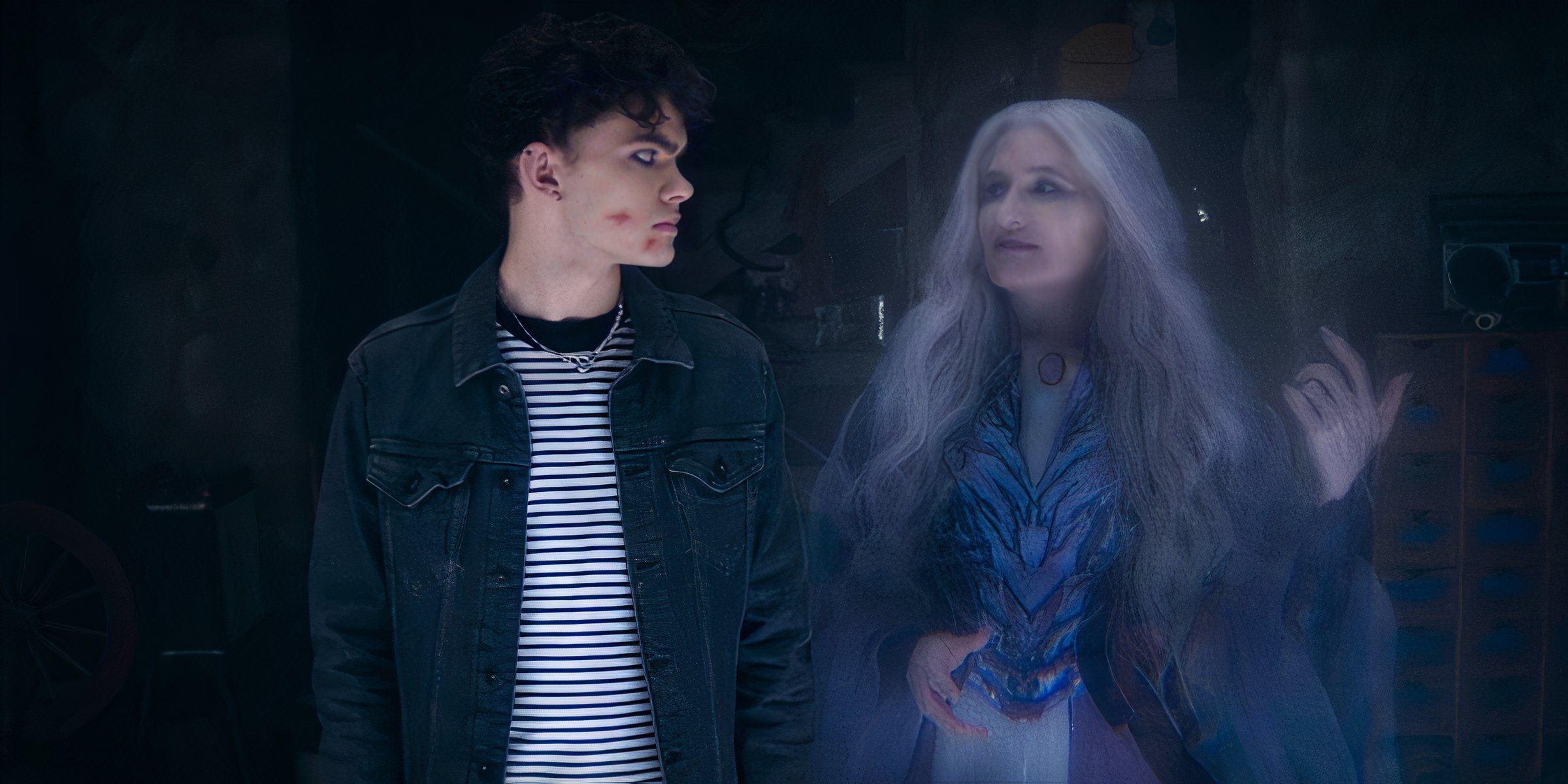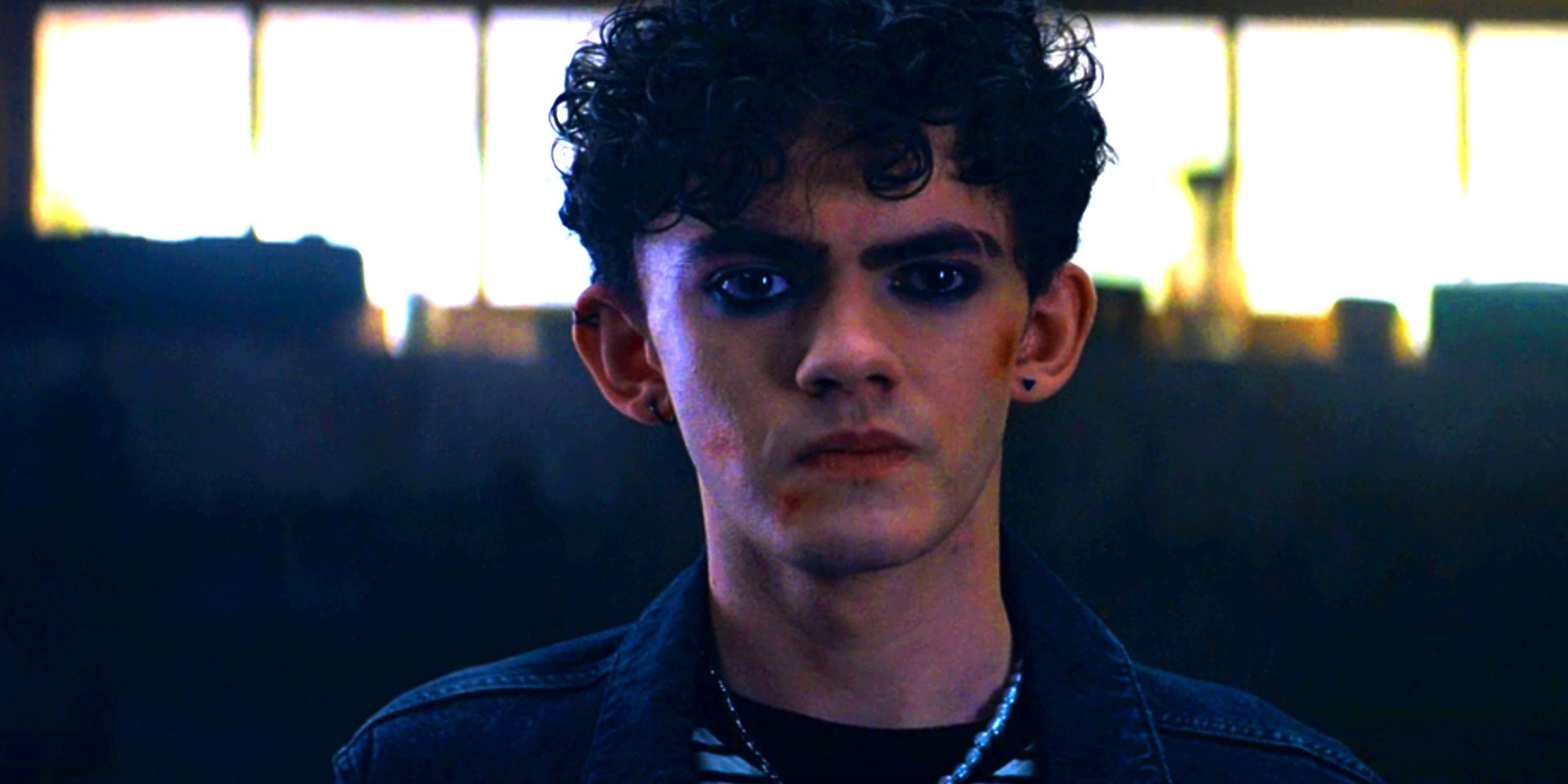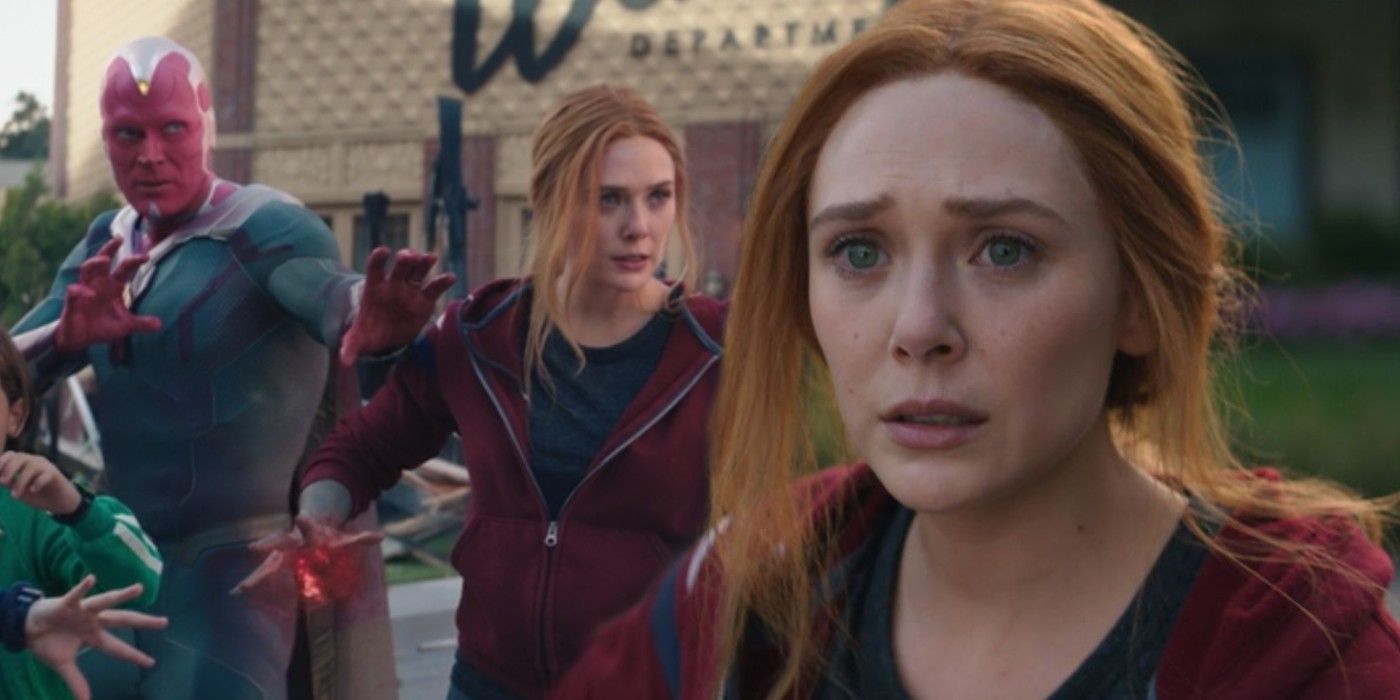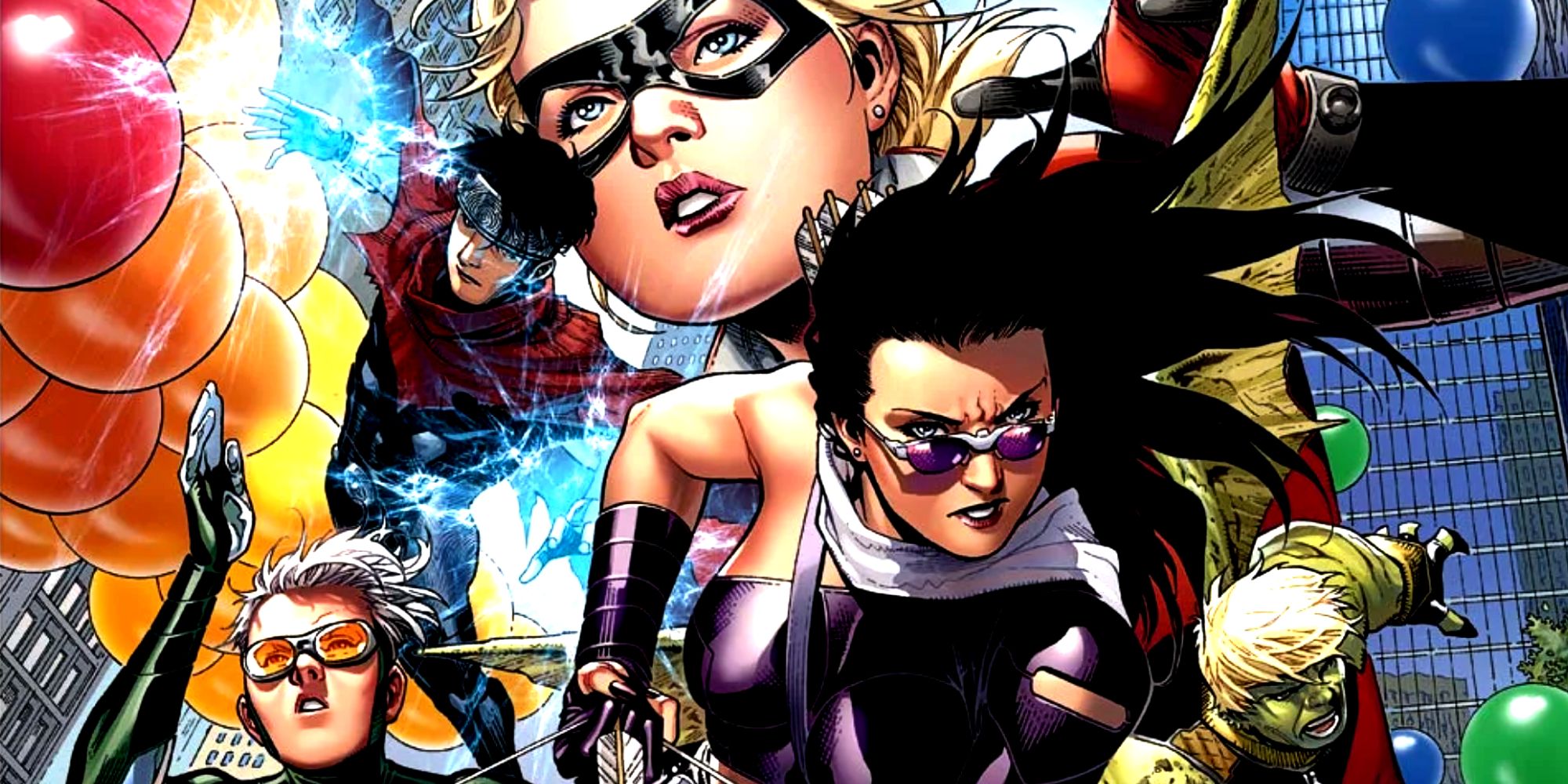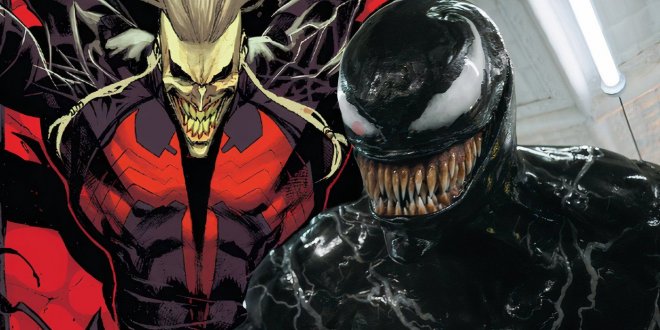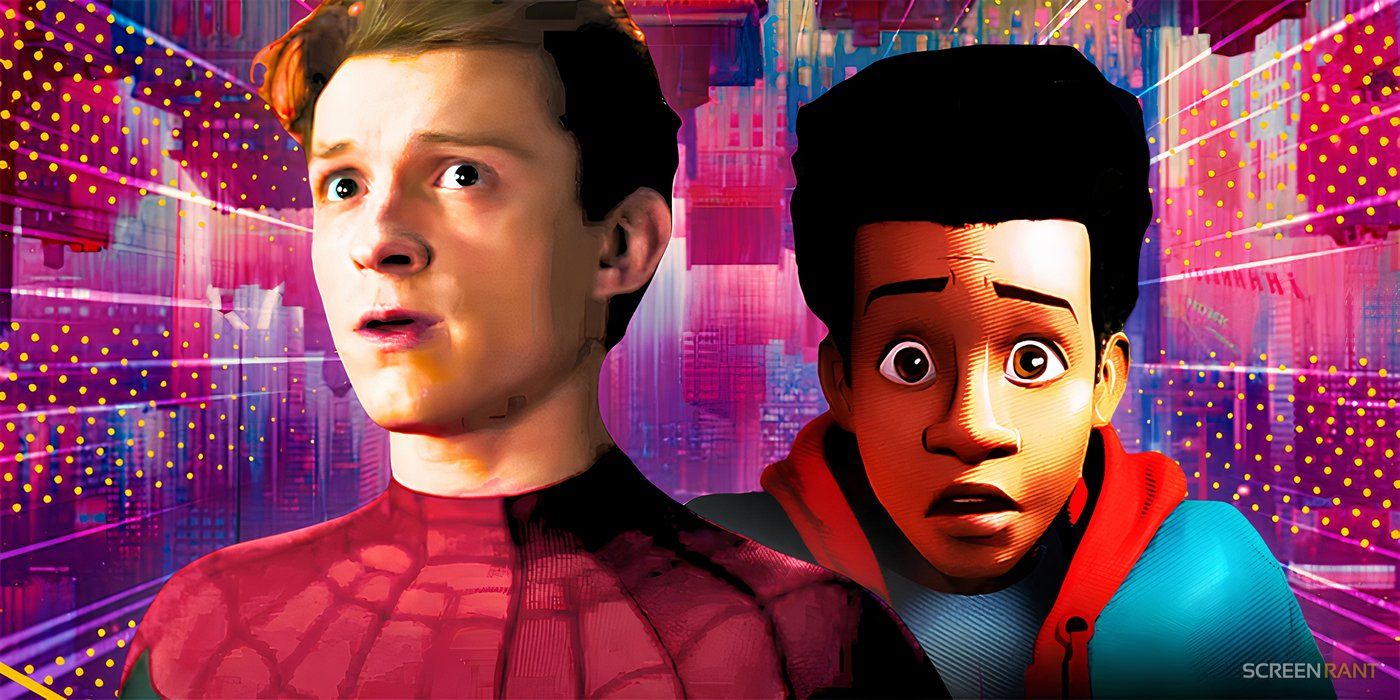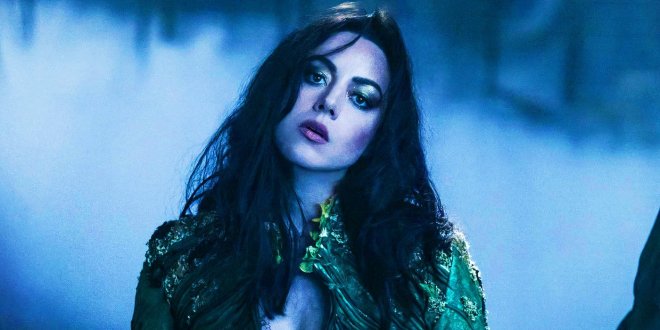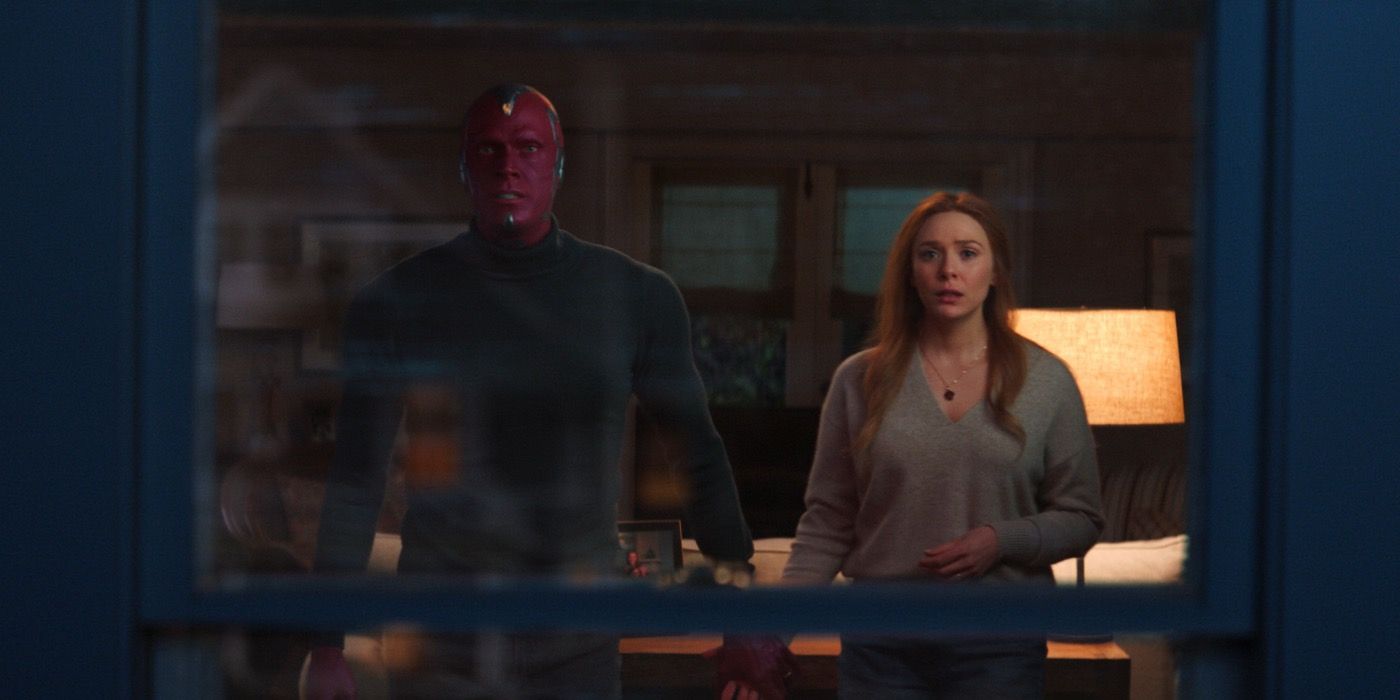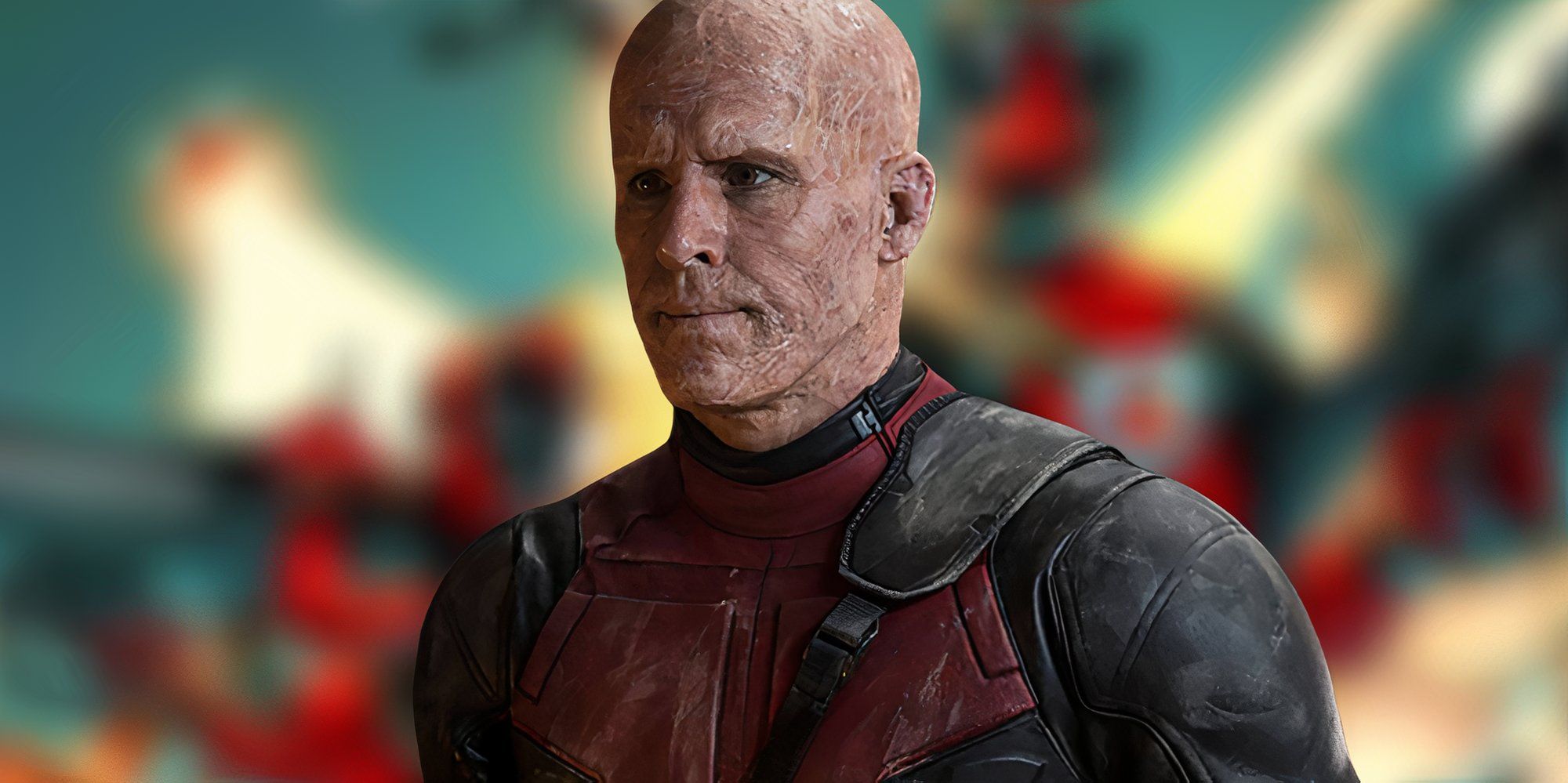Every Marvel Movie That Isn"t Part Of The MCU
Well before the Marvel Cinematic Universe, live-action movies were adapting Marvel Comics' famous characters and laying the groundwork for the rise of superhero movies in the 2000s. Prior to Marvel Studios' release of Iron Man in 2008, the first official entry into the official MCU, non-MCU Marvel movies were often regarded as critical failures that didn't manage to capture the magic of the comics. After the commercial and critical failure of Howard the Duck, Marvel was facing bankruptcy and chose to sell the movie rights to its most well-known properties, including the X-Men and The Fantastic Four, allowing several films featuring those characters to be developed by other production studios.
Marvel Entertainment, including the Marvel Studios production company, was purchased by Disney in 2009. Despite that, the film rights to many Marvel characters still belonged to other studios. As a result, some of the biggest franchises, including the X-Men and Spider-Man film adaptations, exist entirely separate from Marvel Studios' MCU. The 2019 acquisition of 20th Century Fox by Disney meant that Fox's previous stories, most notably those including the X-Men and mutants, could be rebooted in the MCU. There is a long history of non-MCU Marvel movies that are stylistically different from the MCU, but many of them remain watchable. Here's every Marvel movie that isn't part of the MCU.
Captain America Serial Film & Return of Captain America (1944)![]() While Marvel Comics was still operating as Timely Comics, Republic's Captain America serial film, released in 1944, follows District Attorney Grant Gardner instead of the more well-known Steve Rogers. Gardner goes after Dr. Maldor after his secretary is kidnaped and prevents him from using a "Dynamic Vibrator" to unleash a toxic chemical, "Purple Death." The film is evidently a product of its time both in format and narrative approach, as it was a campy low-budget serial with outdated tropes. Captain America was also Republic's last serial superhero movie — with other notable releases being DC's Captain Marvel and Batman — and was re-released as Return of Captain America in 1953.
While Marvel Comics was still operating as Timely Comics, Republic's Captain America serial film, released in 1944, follows District Attorney Grant Gardner instead of the more well-known Steve Rogers. Gardner goes after Dr. Maldor after his secretary is kidnaped and prevents him from using a "Dynamic Vibrator" to unleash a toxic chemical, "Purple Death." The film is evidently a product of its time both in format and narrative approach, as it was a campy low-budget serial with outdated tropes. Captain America was also Republic's last serial superhero movie — with other notable releases being DC's Captain Marvel and Batman — and was re-released as Return of Captain America in 1953.
The Bill Bixby & Lou Ferrigno Incredible Hulk Movies (1977–1990)![]() One of the most successful non-MCU Marvel movie outings was the 1977 The Incredible Hulk TV show, starring Bill Bixby as David Banner and Lou Ferrigno as the Hulk. Banner's tragic story starts with a one-hour movie called The Incredible Hulk, followed by the more comedic The Return of The Incredible Hulk, 1988's The Incredible Hulk Returns (which also featured the first live-action version of Thor), 1989's The Trial of The Incredible Hulk, and 1990's tragic finale, The Death of The Incredible Hulk. The movies and the show are known for capturing the pain of Hulk's duality, and their influence can even be felt throughout the Hulk's tumultuous MCU journey.
One of the most successful non-MCU Marvel movie outings was the 1977 The Incredible Hulk TV show, starring Bill Bixby as David Banner and Lou Ferrigno as the Hulk. Banner's tragic story starts with a one-hour movie called The Incredible Hulk, followed by the more comedic The Return of The Incredible Hulk, 1988's The Incredible Hulk Returns (which also featured the first live-action version of Thor), 1989's The Trial of The Incredible Hulk, and 1990's tragic finale, The Death of The Incredible Hulk. The movies and the show are known for capturing the pain of Hulk's duality, and their influence can even be felt throughout the Hulk's tumultuous MCU journey.
Columbia Pictures' Spider-Man (1977–1981)![]() Although Spider-Man's earliest non-MCU Marvel movies are now mainly the target of memes, they were well-received at the time of their original release. Columbia Pictures demonstrated how visually stunning the young hero could be on the big screen in 1977 with practical effects and a real stunt-person web-slinging and wall-crawling. Nicholas Hammond starred in the 1977 film, as well as a TV show and two theatrical sequels, Spider-Man Strikes Back and Spider-Man: The Dragon's Challenge. Spider-Man's first trilogy may not look serious by modern standards, but it holds up as a somewhat accurate adaptation of the tone of the comics from the silver and the bronze age of Marvel Comics.
Although Spider-Man's earliest non-MCU Marvel movies are now mainly the target of memes, they were well-received at the time of their original release. Columbia Pictures demonstrated how visually stunning the young hero could be on the big screen in 1977 with practical effects and a real stunt-person web-slinging and wall-crawling. Nicholas Hammond starred in the 1977 film, as well as a TV show and two theatrical sequels, Spider-Man Strikes Back and Spider-Man: The Dragon's Challenge. Spider-Man's first trilogy may not look serious by modern standards, but it holds up as a somewhat accurate adaptation of the tone of the comics from the silver and the bronze age of Marvel Comics.
Toei's Spider-Man (1978)![]() Toei's Spider-Man released in 1978 concurrently with a popular TV show at the time. Shinji Tōdō played Takuya Yamashiro, a racer who came into contact with an alien spaceship called the Marveller. Garia, the last survivor of Planet Spider, gives Takuya his powers through a blood transfusion. The incident also causes the evil Professor Monster to become Takuya's archenemy. The 1978 movie saw Spider-Man team up with Interpol Agent Jūzō Mamiya and transform the Marveller into a robot to fight a monster called Sea-Devil. Clearly, Toei's Spider-Man has almost nothing to do with Marvel Comics' original hero, but that doesn't mean the story isn't weirdly enjoyable, regardless.
Toei's Spider-Man released in 1978 concurrently with a popular TV show at the time. Shinji Tōdō played Takuya Yamashiro, a racer who came into contact with an alien spaceship called the Marveller. Garia, the last survivor of Planet Spider, gives Takuya his powers through a blood transfusion. The incident also causes the evil Professor Monster to become Takuya's archenemy. The 1978 movie saw Spider-Man team up with Interpol Agent Jūzō Mamiya and transform the Marveller into a robot to fight a monster called Sea-Devil. Clearly, Toei's Spider-Man has almost nothing to do with Marvel Comics' original hero, but that doesn't mean the story isn't weirdly enjoyable, regardless.
Dr. Strange (1978)![]() Dr. Strange was a 1978 feature-length TV pilot for CBS starring Peter Hooten that served as an origin story for the Sorcerer Supreme in a story that unfortunately never saw the light of day. Unlike the contemporary series The Incredible Hulk, and despite Stan Lee's involvement as a consultant, Dr. Strange wasn't picked up by CBS. The non-MCU Marvel movie had the potential to be a cheesy but fun take on the Sorcerer Supreme but was only followed by the 1992 movie Doctor Mordrid, which was also supposed to be an official Doctor Strange adaptation at first, though it lost the opportunity to adapt the character.
Dr. Strange was a 1978 feature-length TV pilot for CBS starring Peter Hooten that served as an origin story for the Sorcerer Supreme in a story that unfortunately never saw the light of day. Unlike the contemporary series The Incredible Hulk, and despite Stan Lee's involvement as a consultant, Dr. Strange wasn't picked up by CBS. The non-MCU Marvel movie had the potential to be a cheesy but fun take on the Sorcerer Supreme but was only followed by the 1992 movie Doctor Mordrid, which was also supposed to be an official Doctor Strange adaptation at first, though it lost the opportunity to adapt the character.
Captain America (1979–1990)![]() Captain America's first three movies are among the cheesiest of all the non-MCU Marvel movies. 1979's Captain America and Captain America II: Death Too Soon follow a motorcycle-riding version of Steve Rogers, who gets his superhero identity and powers from his father. 1990's Captain America is a bit more comic-accurate, with Steve Rogers being frozen and thawed, a deformed Red Skull wanting to destroy the United States with a nuclear bomb, and a Captain America costume that is a little bit too accurate for its own good.
Captain America's first three movies are among the cheesiest of all the non-MCU Marvel movies. 1979's Captain America and Captain America II: Death Too Soon follow a motorcycle-riding version of Steve Rogers, who gets his superhero identity and powers from his father. 1990's Captain America is a bit more comic-accurate, with Steve Rogers being frozen and thawed, a deformed Red Skull wanting to destroy the United States with a nuclear bomb, and a Captain America costume that is a little bit too accurate for its own good.
Howard the Duck (1986)![]() Howard the Duck is a 1986 science-fiction comedy based on Marvel's irreverent anthropomorphic duck. Though intended as an animated film, it became live-action due to a contractual obligation. Unfortunately, Howard the Duck was a critical and commercial failure, despite starring Back to the Future's Lea Thompson as Beverly Switzler and Chip Zien voicing Howard. Critics and audiences mostly disliked the film's bizarre story and humor, and as a result, Howard the Duck has often been included in "worst movies of all time" lists. Howard the Duck has since appeared in MCU projects including the Guardians of the Galaxy franchise and What If...?.
Howard the Duck is a 1986 science-fiction comedy based on Marvel's irreverent anthropomorphic duck. Though intended as an animated film, it became live-action due to a contractual obligation. Unfortunately, Howard the Duck was a critical and commercial failure, despite starring Back to the Future's Lea Thompson as Beverly Switzler and Chip Zien voicing Howard. Critics and audiences mostly disliked the film's bizarre story and humor, and as a result, Howard the Duck has often been included in "worst movies of all time" lists. Howard the Duck has since appeared in MCU projects including the Guardians of the Galaxy franchise and What If...?.
The Punisher Movies (1989–2008)![]() Just like Marvel Comics' anti-hero, live-action adaptations of the Punisher have been some of the most brutal non-MCU Marvel films. Action movie icon Dolph Lundgren starred as Frank Castle in 1989's The Punisher. Lundgren didn't wear Castle's classic costume, but fought the Yakuza to defend the children of the mob he used to torment. Thomas Jane starred in 2004's The Punisher, seeking revenge for his family's murders, caused by John Travolta's Howard Saint. Lastly, Ray Stevenson starred in 2008's The Punisher: War Zone, with Dominic West as the most accurate live-action depiction of Jigsaw to date. Jane later reprised the role for a 2012 fan film, The Punisher: Dirty Laundry.
Just like Marvel Comics' anti-hero, live-action adaptations of the Punisher have been some of the most brutal non-MCU Marvel films. Action movie icon Dolph Lundgren starred as Frank Castle in 1989's The Punisher. Lundgren didn't wear Castle's classic costume, but fought the Yakuza to defend the children of the mob he used to torment. Thomas Jane starred in 2004's The Punisher, seeking revenge for his family's murders, caused by John Travolta's Howard Saint. Lastly, Ray Stevenson starred in 2008's The Punisher: War Zone, with Dominic West as the most accurate live-action depiction of Jigsaw to date. Jane later reprised the role for a 2012 fan film, The Punisher: Dirty Laundry.
Fantastic Four (1994)![]() Like the failed Captain America and Doctor Strange movies, the first non-MCU Fantastic Four movie wasn't made with the same ambition as Marvel's recent blockbusters. 1994's Fantastic Four was allegedly never supposed to be released, only being developed as a way to keep the characters' film rights from expiring. Unaware of this, the cast witnessed promotion for the film canceled, with the producers even intending to erase every copy of the final product. Fortunately, this non-MCU movie still exists as a unique part of Marvel film history, but its low budget and bare-bones story are enough to confirm why it was never intended to be a "real" Marvel film.
Like the failed Captain America and Doctor Strange movies, the first non-MCU Fantastic Four movie wasn't made with the same ambition as Marvel's recent blockbusters. 1994's Fantastic Four was allegedly never supposed to be released, only being developed as a way to keep the characters' film rights from expiring. Unaware of this, the cast witnessed promotion for the film canceled, with the producers even intending to erase every copy of the final product. Fortunately, this non-MCU movie still exists as a unique part of Marvel film history, but its low budget and bare-bones story are enough to confirm why it was never intended to be a "real" Marvel film.
Generation X (1996)![]() Based on the eponymous mutant team of the 1990s, Generation X is perhaps one of the most overlooked of the early non-MCU Marvel movies. Jubilee serves as the movie's main protagonist, with Emma Frost as the mentor figure and Doctor Russel Tresh as the villain. Other mutants include Banshee, M, Mondo, Skin, Buff, and Refrax. The movie shares some similarities with Fox's X-Men franchise regarding its basic themes of mutant exclusion, and it also has strong parallels to 2020's The New Mutants, as it follows a team of teenage students who begin to familiarize themselves with their powers while at the Xavier School for Gifted Youngsters.
Based on the eponymous mutant team of the 1990s, Generation X is perhaps one of the most overlooked of the early non-MCU Marvel movies. Jubilee serves as the movie's main protagonist, with Emma Frost as the mentor figure and Doctor Russel Tresh as the villain. Other mutants include Banshee, M, Mondo, Skin, Buff, and Refrax. The movie shares some similarities with Fox's X-Men franchise regarding its basic themes of mutant exclusion, and it also has strong parallels to 2020's The New Mutants, as it follows a team of teenage students who begin to familiarize themselves with their powers while at the Xavier School for Gifted Youngsters.
Nick Fury: Agent of S.H.I.E.L.D. (1998)![]() 1998's Nick Fury: Agent of S.H.I.E.L.D. is yet another feature-length pilot for a failed Marvel TV series. Baywatch star David Hasselhoff starred as Fury, based on Marvel Comics' original version (before Samuel L. Jackson revamped the character). The film featured lots of Captain America-related characters such as Dr. Arnim Zola, the Von Strucker family, Dum Dum Dugan, and Contessa Valentina Allegra de Fontaine — who made her MCU debut in The Falcon and the Winter Soldier, played by Julia Louis-Dreyfus. David Hasselhoff has since made a cameo appearance in Guardians of the Galaxy as one of the forms Ego takes to manipulate Peter Quill into joining him.
1998's Nick Fury: Agent of S.H.I.E.L.D. is yet another feature-length pilot for a failed Marvel TV series. Baywatch star David Hasselhoff starred as Fury, based on Marvel Comics' original version (before Samuel L. Jackson revamped the character). The film featured lots of Captain America-related characters such as Dr. Arnim Zola, the Von Strucker family, Dum Dum Dugan, and Contessa Valentina Allegra de Fontaine — who made her MCU debut in The Falcon and the Winter Soldier, played by Julia Louis-Dreyfus. David Hasselhoff has since made a cameo appearance in Guardians of the Galaxy as one of the forms Ego takes to manipulate Peter Quill into joining him.
The Blade Trilogy (1998-2004)![]() Blade released in 1998, directed by Stephen Norrington and starring Wesley Snipes in the titular role. Blade follows a Dhampir (a human with vampire strengths but no weaknesses) who fights vampires, most notably Deacon Frost. The movie is widely regarded as Marvel's most important step toward blockbuster success. Blade struck a note with critics and audiences, spawned two sequels, and gave superhero movies a boost in reputation. Blade II released in 2002, and the disastrous Blade: Trinity followed in 2004. The trilogy set the stage for Sam Raimi's Spider-Man movies, and Mahershala Ali was confirmed to be rebooting the character for the MCU, with Blade set to release in 2024.
Blade released in 1998, directed by Stephen Norrington and starring Wesley Snipes in the titular role. Blade follows a Dhampir (a human with vampire strengths but no weaknesses) who fights vampires, most notably Deacon Frost. The movie is widely regarded as Marvel's most important step toward blockbuster success. Blade struck a note with critics and audiences, spawned two sequels, and gave superhero movies a boost in reputation. Blade II released in 2002, and the disastrous Blade: Trinity followed in 2004. The trilogy set the stage for Sam Raimi's Spider-Man movies, and Mahershala Ali was confirmed to be rebooting the character for the MCU, with Blade set to release in 2024.
The X-Men Franchise (2000-2019)![]() 20th Century Fox first obtained the rights to Marvel Comics' X-Men in 1994 and held them until 2019, with Bryan Singer hired to direct the first two films. The original X-Men trilogy includes 2000's X-Men, 2003's X2, and 2006's X-Men: The Last Stand. The original trilogy led to the release of spin-off films, 2009's X-Men Origins: Wolverine and 2013's The Wolverine. Fox's X-Men franchise was soft-rebooted in 2011 with X-Men: First Class, a film that explored the formation of the X-Men and the friendship between Magneto and Professor X. This led to 2014's release of X-Men: Days of Future Past, 2016's X-Men: Apocalypse, and 2019's X-Men: Dark Phoenix.
20th Century Fox first obtained the rights to Marvel Comics' X-Men in 1994 and held them until 2019, with Bryan Singer hired to direct the first two films. The original X-Men trilogy includes 2000's X-Men, 2003's X2, and 2006's X-Men: The Last Stand. The original trilogy led to the release of spin-off films, 2009's X-Men Origins: Wolverine and 2013's The Wolverine. Fox's X-Men franchise was soft-rebooted in 2011 with X-Men: First Class, a film that explored the formation of the X-Men and the friendship between Magneto and Professor X. This led to 2014's release of X-Men: Days of Future Past, 2016's X-Men: Apocalypse, and 2019's X-Men: Dark Phoenix.
While many of Fox's X-Men films suffered critically, 2016's Deadpool, 2017's Logan, and 2018's Deadpool 2 became the most critically acclaimed movies in the X-Men franchise, dealing with darker tones and more mature content. All three of these films are rated R and are extremely thematically different from the MCU. Whereas MCU projects tend to be bright and quippy, these films were gritty and violent. Fox's final X-Men film, The New Mutants, released in 2020. Disney's acquisition of 20th Century Fox effectively ended the X-Men franchise in its current form, and while the X-Men will be adapted for the MCU, Disney+ has rebranded Fox's franchise as Marvel Legacy films.
Sam Raimi's Spider-Man Trilogy (2002-2007)![]() Sam Raimi's Spider-Man was the first installment in his beloved trilogy, kicking off in 2002 and spawning two sequels in 2004 and 2007. James Cameron intended to write and direct the first film, and one of the few elements from his draft that remained in the trilogy was Peter Parker's biological ability to shoot webs from his wrists. Raimi's Spider-Man trilogy has been credited for redefining the modern superhero genre, continued the work of Blade four years prior. A fourth movie was canceled after Raimi withdrew from the project over creative differences, and the Spider-Man storyline has since been rebooted twice, including for the MCU with Tom Holland as Spider-Man.
Sam Raimi's Spider-Man was the first installment in his beloved trilogy, kicking off in 2002 and spawning two sequels in 2004 and 2007. James Cameron intended to write and direct the first film, and one of the few elements from his draft that remained in the trilogy was Peter Parker's biological ability to shoot webs from his wrists. Raimi's Spider-Man trilogy has been credited for redefining the modern superhero genre, continued the work of Blade four years prior. A fourth movie was canceled after Raimi withdrew from the project over creative differences, and the Spider-Man storyline has since been rebooted twice, including for the MCU with Tom Holland as Spider-Man.
[圖擷取自網路,如有疑問請私訊]
Marvel Entertainment, including the Marvel Studios production company, was purchased by Disney in 2009. Despite that, the film rights to many Marvel characters still belonged to other studios. As a result, some of the biggest franchises, including the X-Men and Spider-Man film adaptations, exist entirely separate from Marvel Studios' MCU. The 2019 acquisition of 20th Century Fox by Disney meant that Fox's previous stories, most notably those including the X-Men and mutants, could be rebooted in the MCU. There is a long history of non-MCU Marvel movies that are stylistically different from the MCU, but many of them remain watchable. Here's every Marvel movie that isn't part of the MCU.
Captain America Serial Film & Return of Captain America (1944)
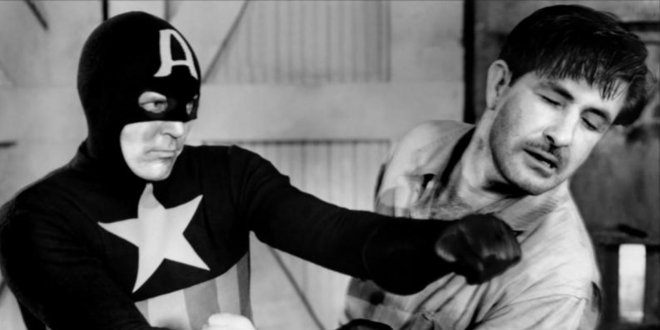 While Marvel Comics was still operating as Timely Comics, Republic's Captain America serial film, released in 1944, follows District Attorney Grant Gardner instead of the more well-known Steve Rogers. Gardner goes after Dr. Maldor after his secretary is kidnaped and prevents him from using a "Dynamic Vibrator" to unleash a toxic chemical, "Purple Death." The film is evidently a product of its time both in format and narrative approach, as it was a campy low-budget serial with outdated tropes. Captain America was also Republic's last serial superhero movie — with other notable releases being DC's Captain Marvel and Batman — and was re-released as Return of Captain America in 1953.
While Marvel Comics was still operating as Timely Comics, Republic's Captain America serial film, released in 1944, follows District Attorney Grant Gardner instead of the more well-known Steve Rogers. Gardner goes after Dr. Maldor after his secretary is kidnaped and prevents him from using a "Dynamic Vibrator" to unleash a toxic chemical, "Purple Death." The film is evidently a product of its time both in format and narrative approach, as it was a campy low-budget serial with outdated tropes. Captain America was also Republic's last serial superhero movie — with other notable releases being DC's Captain Marvel and Batman — and was re-released as Return of Captain America in 1953.The Bill Bixby & Lou Ferrigno Incredible Hulk Movies (1977–1990)
 One of the most successful non-MCU Marvel movie outings was the 1977 The Incredible Hulk TV show, starring Bill Bixby as David Banner and Lou Ferrigno as the Hulk. Banner's tragic story starts with a one-hour movie called The Incredible Hulk, followed by the more comedic The Return of The Incredible Hulk, 1988's The Incredible Hulk Returns (which also featured the first live-action version of Thor), 1989's The Trial of The Incredible Hulk, and 1990's tragic finale, The Death of The Incredible Hulk. The movies and the show are known for capturing the pain of Hulk's duality, and their influence can even be felt throughout the Hulk's tumultuous MCU journey.
One of the most successful non-MCU Marvel movie outings was the 1977 The Incredible Hulk TV show, starring Bill Bixby as David Banner and Lou Ferrigno as the Hulk. Banner's tragic story starts with a one-hour movie called The Incredible Hulk, followed by the more comedic The Return of The Incredible Hulk, 1988's The Incredible Hulk Returns (which also featured the first live-action version of Thor), 1989's The Trial of The Incredible Hulk, and 1990's tragic finale, The Death of The Incredible Hulk. The movies and the show are known for capturing the pain of Hulk's duality, and their influence can even be felt throughout the Hulk's tumultuous MCU journey.Columbia Pictures' Spider-Man (1977–1981)
 Although Spider-Man's earliest non-MCU Marvel movies are now mainly the target of memes, they were well-received at the time of their original release. Columbia Pictures demonstrated how visually stunning the young hero could be on the big screen in 1977 with practical effects and a real stunt-person web-slinging and wall-crawling. Nicholas Hammond starred in the 1977 film, as well as a TV show and two theatrical sequels, Spider-Man Strikes Back and Spider-Man: The Dragon's Challenge. Spider-Man's first trilogy may not look serious by modern standards, but it holds up as a somewhat accurate adaptation of the tone of the comics from the silver and the bronze age of Marvel Comics.
Although Spider-Man's earliest non-MCU Marvel movies are now mainly the target of memes, they were well-received at the time of their original release. Columbia Pictures demonstrated how visually stunning the young hero could be on the big screen in 1977 with practical effects and a real stunt-person web-slinging and wall-crawling. Nicholas Hammond starred in the 1977 film, as well as a TV show and two theatrical sequels, Spider-Man Strikes Back and Spider-Man: The Dragon's Challenge. Spider-Man's first trilogy may not look serious by modern standards, but it holds up as a somewhat accurate adaptation of the tone of the comics from the silver and the bronze age of Marvel Comics.Toei's Spider-Man (1978)
 Toei's Spider-Man released in 1978 concurrently with a popular TV show at the time. Shinji Tōdō played Takuya Yamashiro, a racer who came into contact with an alien spaceship called the Marveller. Garia, the last survivor of Planet Spider, gives Takuya his powers through a blood transfusion. The incident also causes the evil Professor Monster to become Takuya's archenemy. The 1978 movie saw Spider-Man team up with Interpol Agent Jūzō Mamiya and transform the Marveller into a robot to fight a monster called Sea-Devil. Clearly, Toei's Spider-Man has almost nothing to do with Marvel Comics' original hero, but that doesn't mean the story isn't weirdly enjoyable, regardless.
Toei's Spider-Man released in 1978 concurrently with a popular TV show at the time. Shinji Tōdō played Takuya Yamashiro, a racer who came into contact with an alien spaceship called the Marveller. Garia, the last survivor of Planet Spider, gives Takuya his powers through a blood transfusion. The incident also causes the evil Professor Monster to become Takuya's archenemy. The 1978 movie saw Spider-Man team up with Interpol Agent Jūzō Mamiya and transform the Marveller into a robot to fight a monster called Sea-Devil. Clearly, Toei's Spider-Man has almost nothing to do with Marvel Comics' original hero, but that doesn't mean the story isn't weirdly enjoyable, regardless.Dr. Strange (1978)
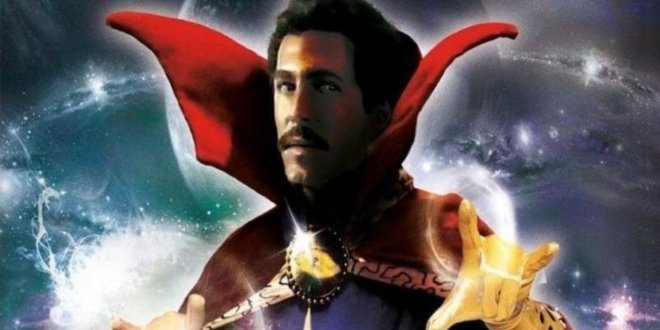 Dr. Strange was a 1978 feature-length TV pilot for CBS starring Peter Hooten that served as an origin story for the Sorcerer Supreme in a story that unfortunately never saw the light of day. Unlike the contemporary series The Incredible Hulk, and despite Stan Lee's involvement as a consultant, Dr. Strange wasn't picked up by CBS. The non-MCU Marvel movie had the potential to be a cheesy but fun take on the Sorcerer Supreme but was only followed by the 1992 movie Doctor Mordrid, which was also supposed to be an official Doctor Strange adaptation at first, though it lost the opportunity to adapt the character.
Dr. Strange was a 1978 feature-length TV pilot for CBS starring Peter Hooten that served as an origin story for the Sorcerer Supreme in a story that unfortunately never saw the light of day. Unlike the contemporary series The Incredible Hulk, and despite Stan Lee's involvement as a consultant, Dr. Strange wasn't picked up by CBS. The non-MCU Marvel movie had the potential to be a cheesy but fun take on the Sorcerer Supreme but was only followed by the 1992 movie Doctor Mordrid, which was also supposed to be an official Doctor Strange adaptation at first, though it lost the opportunity to adapt the character.Captain America (1979–1990)
 Captain America's first three movies are among the cheesiest of all the non-MCU Marvel movies. 1979's Captain America and Captain America II: Death Too Soon follow a motorcycle-riding version of Steve Rogers, who gets his superhero identity and powers from his father. 1990's Captain America is a bit more comic-accurate, with Steve Rogers being frozen and thawed, a deformed Red Skull wanting to destroy the United States with a nuclear bomb, and a Captain America costume that is a little bit too accurate for its own good.
Captain America's first three movies are among the cheesiest of all the non-MCU Marvel movies. 1979's Captain America and Captain America II: Death Too Soon follow a motorcycle-riding version of Steve Rogers, who gets his superhero identity and powers from his father. 1990's Captain America is a bit more comic-accurate, with Steve Rogers being frozen and thawed, a deformed Red Skull wanting to destroy the United States with a nuclear bomb, and a Captain America costume that is a little bit too accurate for its own good.Howard the Duck (1986)
 Howard the Duck is a 1986 science-fiction comedy based on Marvel's irreverent anthropomorphic duck. Though intended as an animated film, it became live-action due to a contractual obligation. Unfortunately, Howard the Duck was a critical and commercial failure, despite starring Back to the Future's Lea Thompson as Beverly Switzler and Chip Zien voicing Howard. Critics and audiences mostly disliked the film's bizarre story and humor, and as a result, Howard the Duck has often been included in "worst movies of all time" lists. Howard the Duck has since appeared in MCU projects including the Guardians of the Galaxy franchise and What If...?.
Howard the Duck is a 1986 science-fiction comedy based on Marvel's irreverent anthropomorphic duck. Though intended as an animated film, it became live-action due to a contractual obligation. Unfortunately, Howard the Duck was a critical and commercial failure, despite starring Back to the Future's Lea Thompson as Beverly Switzler and Chip Zien voicing Howard. Critics and audiences mostly disliked the film's bizarre story and humor, and as a result, Howard the Duck has often been included in "worst movies of all time" lists. Howard the Duck has since appeared in MCU projects including the Guardians of the Galaxy franchise and What If...?.The Punisher Movies (1989–2008)
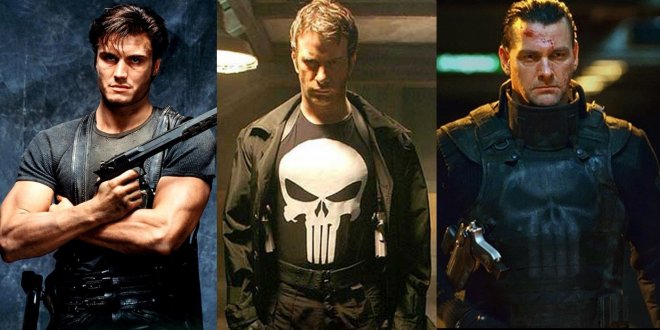 Just like Marvel Comics' anti-hero, live-action adaptations of the Punisher have been some of the most brutal non-MCU Marvel films. Action movie icon Dolph Lundgren starred as Frank Castle in 1989's The Punisher. Lundgren didn't wear Castle's classic costume, but fought the Yakuza to defend the children of the mob he used to torment. Thomas Jane starred in 2004's The Punisher, seeking revenge for his family's murders, caused by John Travolta's Howard Saint. Lastly, Ray Stevenson starred in 2008's The Punisher: War Zone, with Dominic West as the most accurate live-action depiction of Jigsaw to date. Jane later reprised the role for a 2012 fan film, The Punisher: Dirty Laundry.
Just like Marvel Comics' anti-hero, live-action adaptations of the Punisher have been some of the most brutal non-MCU Marvel films. Action movie icon Dolph Lundgren starred as Frank Castle in 1989's The Punisher. Lundgren didn't wear Castle's classic costume, but fought the Yakuza to defend the children of the mob he used to torment. Thomas Jane starred in 2004's The Punisher, seeking revenge for his family's murders, caused by John Travolta's Howard Saint. Lastly, Ray Stevenson starred in 2008's The Punisher: War Zone, with Dominic West as the most accurate live-action depiction of Jigsaw to date. Jane later reprised the role for a 2012 fan film, The Punisher: Dirty Laundry.Fantastic Four (1994)
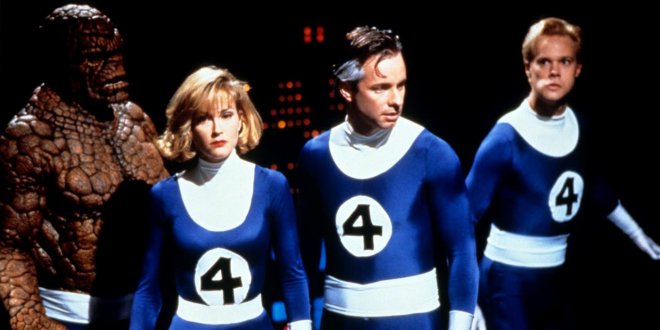 Like the failed Captain America and Doctor Strange movies, the first non-MCU Fantastic Four movie wasn't made with the same ambition as Marvel's recent blockbusters. 1994's Fantastic Four was allegedly never supposed to be released, only being developed as a way to keep the characters' film rights from expiring. Unaware of this, the cast witnessed promotion for the film canceled, with the producers even intending to erase every copy of the final product. Fortunately, this non-MCU movie still exists as a unique part of Marvel film history, but its low budget and bare-bones story are enough to confirm why it was never intended to be a "real" Marvel film.
Like the failed Captain America and Doctor Strange movies, the first non-MCU Fantastic Four movie wasn't made with the same ambition as Marvel's recent blockbusters. 1994's Fantastic Four was allegedly never supposed to be released, only being developed as a way to keep the characters' film rights from expiring. Unaware of this, the cast witnessed promotion for the film canceled, with the producers even intending to erase every copy of the final product. Fortunately, this non-MCU movie still exists as a unique part of Marvel film history, but its low budget and bare-bones story are enough to confirm why it was never intended to be a "real" Marvel film.Generation X (1996)
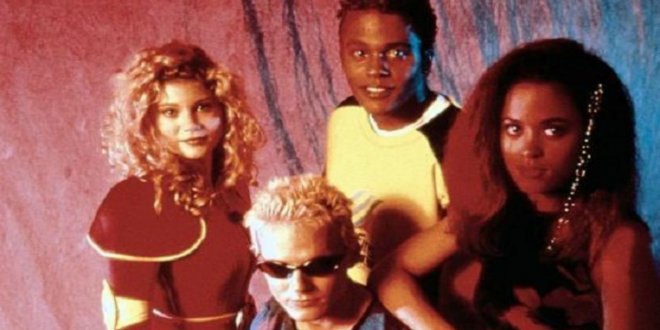 Based on the eponymous mutant team of the 1990s, Generation X is perhaps one of the most overlooked of the early non-MCU Marvel movies. Jubilee serves as the movie's main protagonist, with Emma Frost as the mentor figure and Doctor Russel Tresh as the villain. Other mutants include Banshee, M, Mondo, Skin, Buff, and Refrax. The movie shares some similarities with Fox's X-Men franchise regarding its basic themes of mutant exclusion, and it also has strong parallels to 2020's The New Mutants, as it follows a team of teenage students who begin to familiarize themselves with their powers while at the Xavier School for Gifted Youngsters.
Based on the eponymous mutant team of the 1990s, Generation X is perhaps one of the most overlooked of the early non-MCU Marvel movies. Jubilee serves as the movie's main protagonist, with Emma Frost as the mentor figure and Doctor Russel Tresh as the villain. Other mutants include Banshee, M, Mondo, Skin, Buff, and Refrax. The movie shares some similarities with Fox's X-Men franchise regarding its basic themes of mutant exclusion, and it also has strong parallels to 2020's The New Mutants, as it follows a team of teenage students who begin to familiarize themselves with their powers while at the Xavier School for Gifted Youngsters.Nick Fury: Agent of S.H.I.E.L.D. (1998)
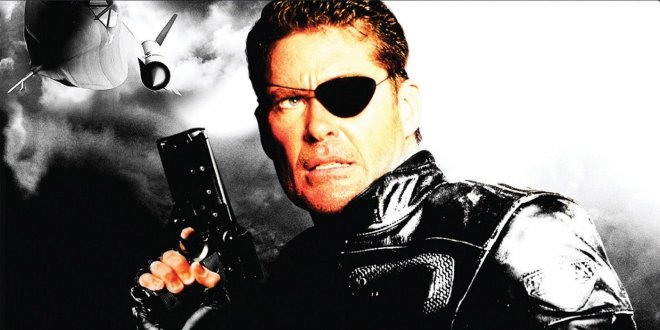 1998's Nick Fury: Agent of S.H.I.E.L.D. is yet another feature-length pilot for a failed Marvel TV series. Baywatch star David Hasselhoff starred as Fury, based on Marvel Comics' original version (before Samuel L. Jackson revamped the character). The film featured lots of Captain America-related characters such as Dr. Arnim Zola, the Von Strucker family, Dum Dum Dugan, and Contessa Valentina Allegra de Fontaine — who made her MCU debut in The Falcon and the Winter Soldier, played by Julia Louis-Dreyfus. David Hasselhoff has since made a cameo appearance in Guardians of the Galaxy as one of the forms Ego takes to manipulate Peter Quill into joining him.
1998's Nick Fury: Agent of S.H.I.E.L.D. is yet another feature-length pilot for a failed Marvel TV series. Baywatch star David Hasselhoff starred as Fury, based on Marvel Comics' original version (before Samuel L. Jackson revamped the character). The film featured lots of Captain America-related characters such as Dr. Arnim Zola, the Von Strucker family, Dum Dum Dugan, and Contessa Valentina Allegra de Fontaine — who made her MCU debut in The Falcon and the Winter Soldier, played by Julia Louis-Dreyfus. David Hasselhoff has since made a cameo appearance in Guardians of the Galaxy as one of the forms Ego takes to manipulate Peter Quill into joining him.The Blade Trilogy (1998-2004)
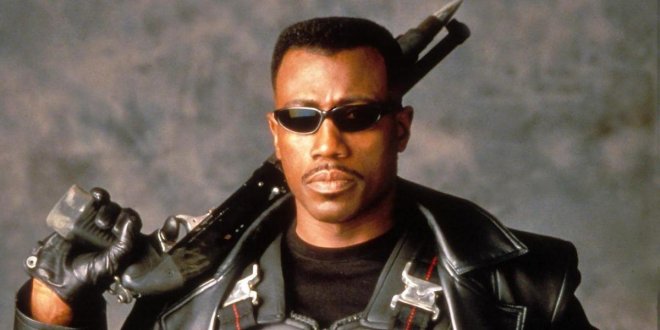 Blade released in 1998, directed by Stephen Norrington and starring Wesley Snipes in the titular role. Blade follows a Dhampir (a human with vampire strengths but no weaknesses) who fights vampires, most notably Deacon Frost. The movie is widely regarded as Marvel's most important step toward blockbuster success. Blade struck a note with critics and audiences, spawned two sequels, and gave superhero movies a boost in reputation. Blade II released in 2002, and the disastrous Blade: Trinity followed in 2004. The trilogy set the stage for Sam Raimi's Spider-Man movies, and Mahershala Ali was confirmed to be rebooting the character for the MCU, with Blade set to release in 2024.
Blade released in 1998, directed by Stephen Norrington and starring Wesley Snipes in the titular role. Blade follows a Dhampir (a human with vampire strengths but no weaknesses) who fights vampires, most notably Deacon Frost. The movie is widely regarded as Marvel's most important step toward blockbuster success. Blade struck a note with critics and audiences, spawned two sequels, and gave superhero movies a boost in reputation. Blade II released in 2002, and the disastrous Blade: Trinity followed in 2004. The trilogy set the stage for Sam Raimi's Spider-Man movies, and Mahershala Ali was confirmed to be rebooting the character for the MCU, with Blade set to release in 2024.The X-Men Franchise (2000-2019)
 20th Century Fox first obtained the rights to Marvel Comics' X-Men in 1994 and held them until 2019, with Bryan Singer hired to direct the first two films. The original X-Men trilogy includes 2000's X-Men, 2003's X2, and 2006's X-Men: The Last Stand. The original trilogy led to the release of spin-off films, 2009's X-Men Origins: Wolverine and 2013's The Wolverine. Fox's X-Men franchise was soft-rebooted in 2011 with X-Men: First Class, a film that explored the formation of the X-Men and the friendship between Magneto and Professor X. This led to 2014's release of X-Men: Days of Future Past, 2016's X-Men: Apocalypse, and 2019's X-Men: Dark Phoenix.
20th Century Fox first obtained the rights to Marvel Comics' X-Men in 1994 and held them until 2019, with Bryan Singer hired to direct the first two films. The original X-Men trilogy includes 2000's X-Men, 2003's X2, and 2006's X-Men: The Last Stand. The original trilogy led to the release of spin-off films, 2009's X-Men Origins: Wolverine and 2013's The Wolverine. Fox's X-Men franchise was soft-rebooted in 2011 with X-Men: First Class, a film that explored the formation of the X-Men and the friendship between Magneto and Professor X. This led to 2014's release of X-Men: Days of Future Past, 2016's X-Men: Apocalypse, and 2019's X-Men: Dark Phoenix.While many of Fox's X-Men films suffered critically, 2016's Deadpool, 2017's Logan, and 2018's Deadpool 2 became the most critically acclaimed movies in the X-Men franchise, dealing with darker tones and more mature content. All three of these films are rated R and are extremely thematically different from the MCU. Whereas MCU projects tend to be bright and quippy, these films were gritty and violent. Fox's final X-Men film, The New Mutants, released in 2020. Disney's acquisition of 20th Century Fox effectively ended the X-Men franchise in its current form, and while the X-Men will be adapted for the MCU, Disney+ has rebranded Fox's franchise as Marvel Legacy films.
Sam Raimi's Spider-Man Trilogy (2002-2007)
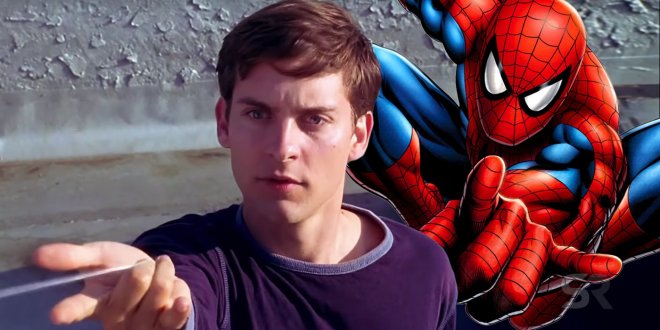 Sam Raimi's Spider-Man was the first installment in his beloved trilogy, kicking off in 2002 and spawning two sequels in 2004 and 2007. James Cameron intended to write and direct the first film, and one of the few elements from his draft that remained in the trilogy was Peter Parker's biological ability to shoot webs from his wrists. Raimi's Spider-Man trilogy has been credited for redefining the modern superhero genre, continued the work of Blade four years prior. A fourth movie was canceled after Raimi withdrew from the project over creative differences, and the Spider-Man storyline has since been rebooted twice, including for the MCU with Tom Holland as Spider-Man.
Sam Raimi's Spider-Man was the first installment in his beloved trilogy, kicking off in 2002 and spawning two sequels in 2004 and 2007. James Cameron intended to write and direct the first film, and one of the few elements from his draft that remained in the trilogy was Peter Parker's biological ability to shoot webs from his wrists. Raimi's Spider-Man trilogy has been credited for redefining the modern superhero genre, continued the work of Blade four years prior. A fourth movie was canceled after Raimi withdrew from the project over creative differences, and the Spider-Man storyline has since been rebooted twice, including for the MCU with Tom Holland as Spider-Man.[圖擷取自網路,如有疑問請私訊]
|
本篇 |
不想錯過? 請追蹤FB專頁! |
| 喜歡這篇嗎?快分享吧! |
相關文章
tag_marvel









